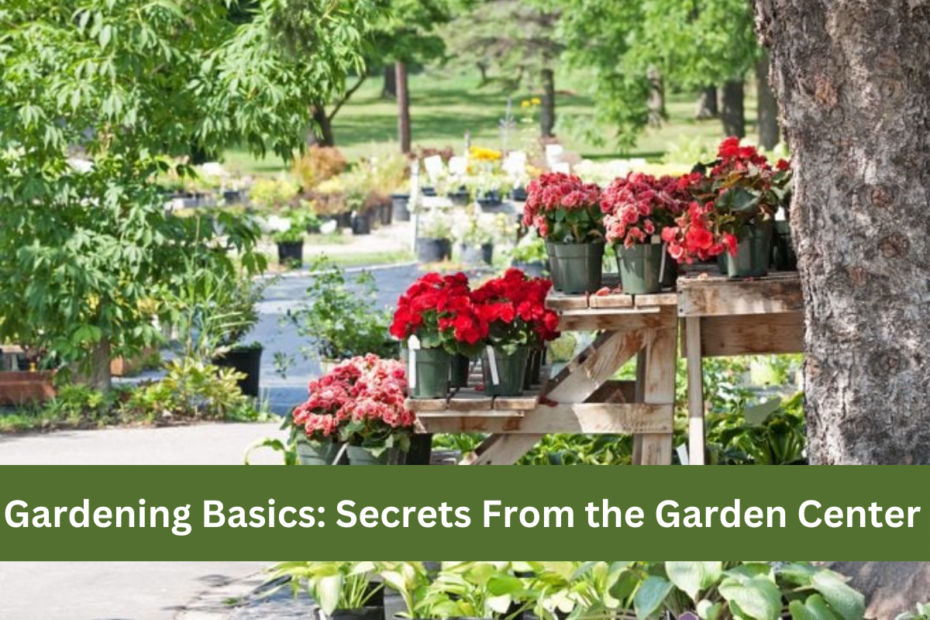Gardening Basics: Secrets From the Garden Center :- Due to the fact that gardening offers a peaceful escape and the chance to engage with the natural world, it is possible to find satisfaction in gardening as a hobby.
Gardening Basics: Secrets From the Garden Center
You may increase your capacity to develop a healthy garden by being familiar with certain key gardening secrets. This is true regardless of whether you are just starting out in gardening or are attempting to expand your skills.
1. Know Your Zone
Recognizing the Different Hardiness Zones Depending on its location, each garden has its own climate, which is impacted by the environment. The United States of America is divided into zones according to the USDA Plant Hardiness Zone Map, which is based on the average annual minimum winter.
ALSO SEE : Golden Fried Prawns Recipe
temperatures there. When you are aware of your zone, you are better able to choose plants that are suitable for the climate in your area. To discover your zone, you can either go to a garden center in your area or look at information available online.
2. Soil is Key
How Important Is Having Quality Soil? The basis of your garden is consisting of soil. Nutrients, water retention, and correct drainage are all benefits that come with having healthy soil. You can have a better understanding of the pH and nutrient content of your soil by testing it.
Advice Take advantage of a soil testing kit that can be found at garden centers. Make adjustments to your soil based on the findings of the tests. Think about using organic materials, such as compost, in order to enhance the structure and fertility of the soil.
3. Choose the Right Plants
Choosing Plants That Are Appropriate Consider the amount of sunlight, water, and space that each plant need while making your selection. By grouping plants that have similar requirements, it is possible to simplify their care and increase the likelihood that they will thrive.
Advice Those who are just starting out should begin with plants that are simple to cultivate, such as marigolds, zinnias, or basil. Go to the garden center in your area to get suggestions on plants that are appropriate for your climate and the sort of soil you have.
4. The Importance of Watering
Watering with Caution Even while water is essential for the health of plants, it is a common mistake to overwater them. Having a good understanding of how much water to apply and when to apply it can make a big difference.
Advice: In order to reduce the amount of water that evaporates, water should be consumed either early in the morning or late in the afternoon. Utilize mulch to help the soil retain moisture and reduce the amount of times it needs to be watered.
5. Water Wisely
Knowing the amount of water that your plants require is really important. The vast majority of plants favor soaking that is deep and infrequent rather than shallow and frequent. Consequently, this promotes the development of deep roots and assists plants in becoming more resistant to drought.
The optimum time to water is first thing in the morning, as this reduces the risk of evaporation and fungal diseases. A more effective method of watering can be achieved by the installation of a drip irrigation system or soaker hoses.
